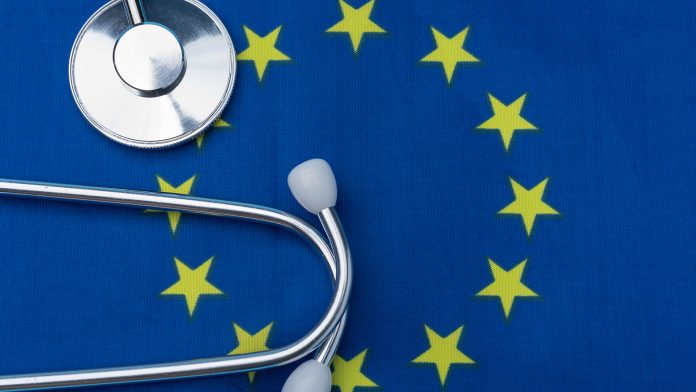
In the midst of the COVID-19 pandemic, Health Europa speaks to the European Commission about how it plans to safeguard the continuum of care for non-communicable diseases.
As healthcare systems around the world endeavour to tackle the ongoing COVID-19 crisis, an ever-growing backlog in non-COVID related care is putting greater pressure on already overstretched care services. Medicine shortages as well as disruptions across the whole spectrum of healthcare, from early detection to follow-up support continue to have a detrimental effect on patients who are having to wait longer for urgent treatment. Such barriers across the continuum of care mean it has never been more important for policymakers to shore up support for health systems and establish effective programmes and partnerships. Following the launch of the European Commission’s Beating Cancer Plan, which aims to tackle many of the challenges associated with cancer prevention and treatment, Health Europa spoke to Stefan de Keersmaecker, spokesperson for health at the European Commission, about how the Commission is continuing to address the impact of COVID-19 on cancer and other growing public health threats from non-communicable diseases.
How has the COVID-19 pandemic impacted access to screening services, diagnosis, and treatment for chronic diseases like cancer?
There is no doubt that the pandemic has significantly affected all aspects of cancer prevention and care, and this is in every Member State. It has disrupted detection and treatment, delayed screening, and affected access to preventative vaccines and medicines. It has also affected the quality of life and follow-up care for patients.
Recent data from the European Cancer Organisation shows the alarming impact of COVID-19 on cancer services and cancer patients across Europe: an estimated one million cancer cases could be undiagnosed in Europe while one in every five cancer patients in Europe are currently still not receiving the surgical or chemotherapy treatment they need.
The European Network of Cancer Registries together with the Joint Research Centre organised two surveys – one in 2020 and one in 2021 – to analyse the impact of the COVID-19 pandemic on cancer registration in Europe, focusing on changes in cancer detection and treatment. The results of the surveys showed that cancer screening programmes were mostly stopped or slowed down in the majority of regions covered by the respondents. As an example, suspension of organised population screening programmes at the beginning of the pandemic was reflected in a strong decline in breast screen detected cancers, for example 56% in Belgium and 67% in the Netherlands.
What progress has been made since the launch of Europe’s Beating Cancer Plan? Can you explain the significance of a ‘health-in-all-policies’ approach in terms of boosting cancer prevention and care?
Through an integrated, health-in-all-policies, multi-stakeholder approach, Europe’s Beating Cancer Plan is addressing cancer prevention and care along the entire disease pathway. The unique health-in-all-policies approach means that many Commission policy departments have contributed to the Plan with actions ranging from securing the supply of medical radioisotopes and setting up a HealthyLifestyle4All initiative to revising the Council Recommendation on cancer screening and creating a Cancer Survivor Smart Card. A successful continuation of this approach will be guaranteed in the implementation phase of the Cancer Plan, through the setup of the Cancer Implementation Group that will ensure internal coherence of policy, actions and funding.
Whilst COVID-19 has been a once in a generation challenge, we have learned some vital lessons. Europe’s Beating Cancer Plan has taken on board the lessons learned from the pandemic, addressing the impact of COVID-19 on cancer. Chief among them are the vital need for coordination, effective partnerships, support for vulnerable groups and contingency planning to ensure no interruptions of cancer care in future crises.
Through financing tools – such as the EU4Health programme and the Recovery and Resilience Facility – the Commission is supporting Member States to enact health reforms and make healthcare systems more resilient and, crucially, to address the cancer backlog as well as tackle any medicines, product and equipment shortages.
And finally, we now have an implementation roadmap for the Cancer Plan firmly in place. It sets out the milestones and a clear timeline. The roadmap is accessible on the Commission website so that everyone can see and follow the state of advancement of the many flagships and actions.
How does the Commission hope to tackle other growing public health threats such a cardiovascular disease through similar early detection and prevention initiatives?
The Commission is working on an initiative to support EU countries in reducing the burden of non-communicable diseases (NCDs) that affect a large number of EU people.
This initiative will help Member States and stakeholders to improve the health of EU citizens by addressing the main causes of non-communicable disease mortality and morbidity: cardiovascular diseases, diabetes, chronic respiratory diseases, mental and neurological disorders, and also health determinants (in coordination with the Europe’s Beating Cancer Plan). While focusing on promotion and prevention, it may also support better knowledge and data, screening and early detection, diagnosis and treatment management, and quality of life of patients with non-communicable diseases.
This initiative will focus on implementation, helping Member States to transfer best practices, develop guidelines, roll out innovative approaches, etc. stakeholders will be supported in actions that can contribute to the same objectives.
In the coming months, priorities and actions will be discussed with EU country representatives at the Steering Group on Promotion and Prevention and with stakeholders via the Health Policy Platform.

How can the Commission ensure a harmonised approach to diagnostics, screening, and prevention for chronic diseases across all European countries to reduce inequalities in healthcare and ensure all EU patients can access effective treatments and support?
The Commission’s role is not to ensure harmonised approaches as healthcare is the remit of responsibility of the Member States. Having said this, the Commission promotes voluntary cooperation and provides support so that the EU countries can develop common work to improve health, in particular initiatives aiming at the establishment of guidelines and indicators, and the exchanges of best practices. In the recent past, this has included the development by the Joint Research Centre of guidelines on screening.
The Commission has also been supporting the implementation of best practices by the Member States via the successful mechanism of the Steering Group on Promotion and Prevention.
The Commission is now preparing an initiative to help EU countries reduce the burden of non-communicable diseases with a special focus on health equity.
Stefan de Keersmaecker
Spokesperson for health, food safety and transport
European Commission
ec.europa.eu
This article is from issue 20 of Health Europa Quarterly. Click here to get your free subscription today.










